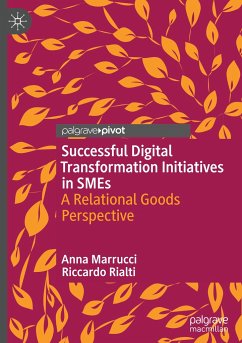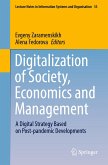While it is clear that workforce involvement is fundamental for the success of digital transformation, it is also evident that insufficient attention has been paid to emerging strategies to convince employees to become involved. To do so, this book considers Relational Goods, the intersubjective and reflexive relationships existing between employees, within the DOI framework to evaluate how they influence digital transformation success alongside innovation traits, time and communication channels.
The focus for this book is SMEs, as these businesses experience greater difficulties than their larger counterparts in keeping up with the digital revolution. The authors develop the Relational Goods model to a refined DOI framework including the role of relationship and managerial support in the adoption of technologies that may transform the business. It will be of great interest to scholars and students of management, digital transformation and SMEs, as well as HRM professionals.
The focus for this book is SMEs, as these businesses experience greater difficulties than their larger counterparts in keeping up with the digital revolution. The authors develop the Relational Goods model to a refined DOI framework including the role of relationship and managerial support in the adoption of technologies that may transform the business. It will be of great interest to scholars and students of management, digital transformation and SMEs, as well as HRM professionals.








